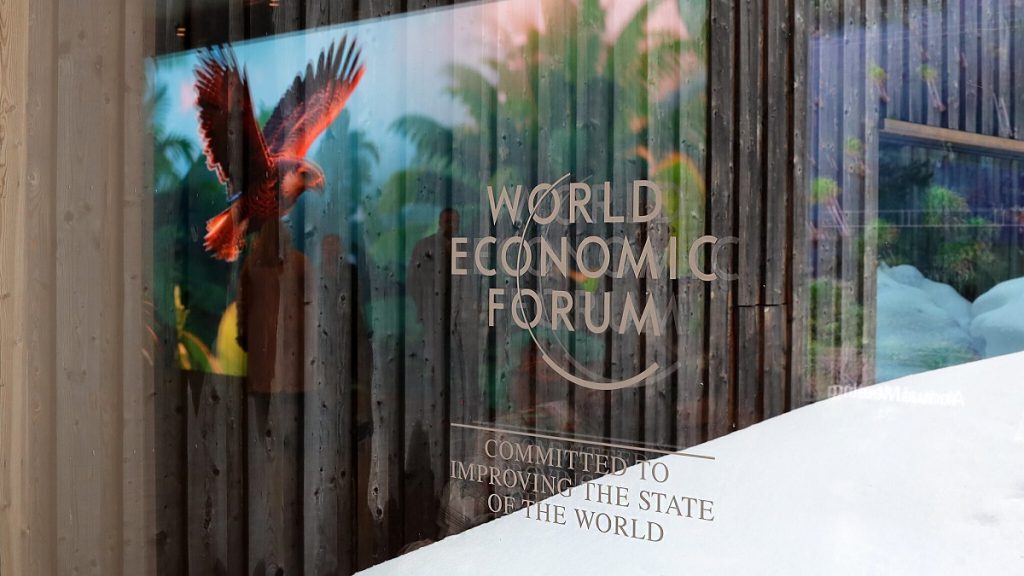The 2024 World Economic Forum (WEF) took place in Davos earlier this year under the theme “Rebuilding Trust Amid Uncertainty.” It addressed global challenges that directly affect Bangladesh, a nation grappling with climate vulnerability, economic instability, and the need for sustainable development. We summarize the key takeaways from the summit and what it means for Bangladesh.
Global economic resilience and trade patterns: With the world leaders at Davos spotlighting global economic resilience, Bangladesh, as a growing economy, stands at a juncture where it could leverage its export-oriented industries, particularly garments, to encourage the public and private sectors to diversify the country’s export basket and explore new markets, reducing dependency on traditional markets that are vulnerable to economic downturns.
Debt restructuring and inflation: As Argentina’s case exemplifies, the discussions on debt restructuring and warnings about inflationary pressures hold a cautionary tale for Bangladesh. As the country strides towards graduation from the Least Developed Country (LDC) status, careful navigation through external debt management and inflation control will be critical to maintaining economic stability and attracting foreign investment.
Energy transition and sustainability: The focus on energy transition and sustainability at Davos resonates with Bangladesh’s energy challenges and commitments to the Paris Agreement. With the energy sector discussions hinting at a gradual shift from fossil fuels and natural gas energy sources depleting in the country and the higher reliance on imports for energy needs, Bangladesh should accelerate its transition towards renewable energy sources, addressing both energy security and climate change mitigation.
Artificial Intelligence and Digital Transformation: Generative AI was one of the key dominating conversations of this year’s forum. While there may be an uneven distribution of the benefits, with advanced countries better positioned to lead in harnessing AI, digital technologies could transform Bangladesh’s agricultural sector, improve healthcare delivery, and create new job opportunities in the tech sector.
Middle East tensions and South Asian politics: The discussions on Middle East tensions at Davos, particularly the conflict in Gaza, though geographically distant, have implications for Bangladesh, especially regarding remittances from Bangladeshi workers in the region and global energy prices. A volatile Middle East could disrupt remittance flows and escalate energy prices, affecting Bangladesh’s economy, which is already grappling with the effects of the dollar crisis. The United Arab Emirates and Saudi Arabia are Bangladesh’s highest remittance sources.
China’s highlighted openness for business and foreign investment at Davos also directly impacts Bangladesh, given the significant Chinese investments in the country’s infrastructure and energy sectors. The total investment from China in Bangladesh stands at over $7.07 billion. Navigating the fine line between benefiting from Chinese investments and maintaining sovereign economic policies will be crucial for Bangladesh.
Trends to watch
With the global emphasis on sustainability, Bangladesh could become a leader in green manufacturing and climate resilience, setting a benchmark for other developing nations. Over 54 of the world’s top 100 Leed green factories are in Bangladesh, a testament to Bangladesh’s potential as a global leader in sustainable manufacturing.
Also, the AI and digital transformation wave presents an opportunity for Bangladesh to become a hub for digital innovation and services in South Asia, a title India currently champions.
Finally, amid global geopolitical shifts, Bangladesh’s role in regional cooperation frameworks could be pivotal in ensuring South Asia’s peace, stability, and prosperity.
Ariyana serves as Assistant Vice President at a leading international commercial bank. An Economics graduate from the Asian University for Women, she previously helped run the first and largest angel network in Bangladesh, alongside launching the pioneering network of women investors and women founders in the country. Reach her here: ariyanaakhan@gmail.com
